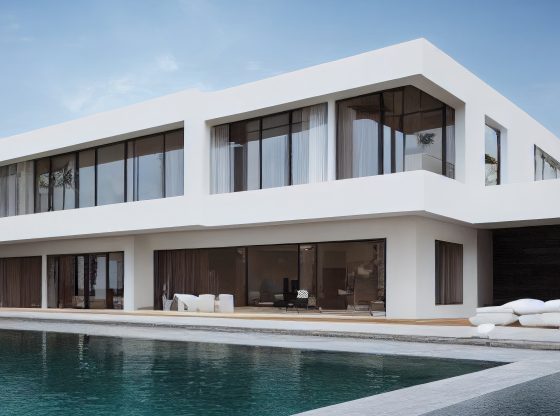Introduction
Luxury real estate is more than just property; it is a statement of prestige, exclusivity, and lifestyle. From sprawling mansions in prime locations to high-rise penthouses overlooking iconic skylines, luxury real estate represents the pinnacle of architectural brilliance, cutting-edge amenities, and long-term investment potential. This guide explores what defines luxury real estate, why it attracts high-value buyers and investors, and how you can approach this lucrative segment without referencing outside sources.
What Defines Luxury Real Estate?
Luxury real estate is characterized not only by its high price but also by exclusivity, uniqueness, and superior quality. These properties typically feature:
- Prime locations (waterfronts, city centers, exclusive gated communities)
- Expansive living spaces
- Premium architecture and custom design
- State-of-the-art smart technology
- Amenities such as private gyms, infinity pools, home theaters, and wine cellars
- Advanced security and privacy measures
The meaning of “luxury” may differ from one city to another, but universally, luxury properties appeal to affluent buyers who value lifestyle, privacy, and prestige.
Why Luxury Real Estate Attracts High CPC (Cost Per Click)
Keywords like “luxury real estate” have some of the highest advertising costs because:
- High Transaction Value: Each sale generates significant commissions for agents and brokers.
- Target Audience: The niche caters to wealthy buyers who are considered premium leads.
- Low Volume, High Reward: Though listings are fewer, every transaction is worth millions.
- International Interest: Affluent investors from different countries compete for elite properties.
Key Features Buyers Look for in Luxury Real Estate
- Prime Location – Oceanfronts, city skylines, and exclusive neighborhoods.
- Unmatched Privacy – Secure entrances, private driveways, and gated communities.
- Unique Architecture – Signature styles by world-class architects.
- Smart Living – Automated systems for lighting, temperature, and security.
- Wellness Amenities – Private gyms, saunas, and spa-inspired bathrooms.
- Entertainment Options – Luxury home theaters, game rooms, and curated wine collections.
- Eco-Friendly Features – Energy efficiency, solar panels, and sustainable materials.
Investment Potential in Luxury Real Estate
Luxury real estate is attractive not just for living but also as an investment:
- Property Value Growth: Prestigious homes appreciate steadily.
- Rental Opportunities: High-end vacation homes can generate substantial rental income.
- Portfolio Diversification: Real estate balances financial risk with tangible assets.
- International Demand: Buyers from around the globe continuously seek luxury investments.
- Prestige of Ownership: Owning a luxury property is often a status symbol as much as an investment.
Challenges in Luxury Real Estate
Despite the rewards, this segment comes with challenges:
- Substantial Initial Investment – Luxury properties require significant capital.
- Selective Buyer Market – Limited pool of qualified buyers.
- Market Sensitivity – Economic shifts can influence demand and prices.
- Slower Sales Cycles – High-end properties may take longer to sell.
How to Market Luxury Real Estate Successfully
Marketing luxury properties requires precision and creativity:
- High-End Photography & Videography – Professional visuals create strong appeal.
- Virtual Tours – Advanced VR tours help international buyers experience properties remotely.
- Exclusive Marketing Events – Private viewings and curated showcases attract elite buyers.
- Targeted Digital Ads – Use high-value keywords to focus on qualified leads.
- Global Exposure – Market on international platforms to attract overseas investors.
- Networking – Build trust through relationships with high-net-worth individuals.
SEO Strategies for Luxury Real Estate Content
To capture organic search traffic around the keyword “luxury real estate,” you can:
- Target long-tail keywords: “Luxury real estate investments,” “Luxury homes market insights,” etc.
- Optimize images with descriptive tags.
- Produce location-specific content such as “Luxury real estate in Dubai” or “Luxury homes in Los Angeles.”
- Write in-depth blogs answering buyer questions.
- Ensure mobile-friendly design for affluent clients browsing on the go.
Future of Luxury Real Estate
The market is shifting toward eco-friendly and tech-integrated homes. Buyers want energy efficiency, health-focused features, and homes adaptable to modern lifestyles. Remote work has also increased demand for spacious vacation-style residences. With international interest remaining strong, luxury real estate continues to stand as a resilient and rewarding sector.
Frequently Asked Questions (FAQs)
Q1: What makes a property “luxury” real estate?
A property qualifies as luxury based on exclusivity, design, location, premium features, and high market value.
Q2: Is luxury real estate a good investment?
Yes, it offers long-term appreciation, strong rental demand, and portfolio diversification.
Q3: Who typically buys luxury properties?
Affluent buyers, including entrepreneurs, executives, celebrities, and global investors.
Q4: What are the main risks in luxury property investments?
Risks include high entry costs, slower sales, and vulnerability to economic changes.
Q5: How can I market a luxury property effectively?
Through professional branding, exclusive events, digital advertising, virtual tours, and global exposure.
Conclusion
Luxury real estate is an exceptional blend of investment, lifestyle, and prestige. While challenges exist, the opportunities for investors and professionals are immense. By adopting innovative marketing strategies, understanding buyer psychology, and staying ahead of evolving trends, success in this high-value market is attainable.
Final Note: Whether you are an agent, investor, or buyer, luxury real estate offers unparalleled opportunities for financial growth and elevated living. With a forward-thinking approach, this sector remains one of the most rewarding in the global property market.
